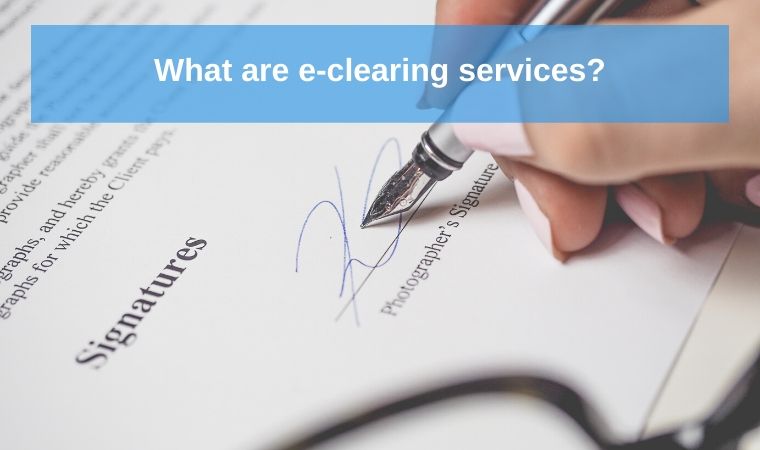What are e-clearing services? | Electronic Clearing System – ECS
The Electronic Clearing System (ECS) is an electronic mode of transferring funds from one bank account to another. It is a safe and convenient method of making recurring payments such as salaries, dividends, pensions, and bills.
ECS can be used for both credit and debit transactions. In a credit transaction, funds are transferred from one bank account to another, while in a debit transaction, funds are transferred from the customer’s account to the beneficiary’s account.
ECS operates on the basis of pre-authorized instructions, which are given by the customer to their bank. The instructions specify the amount to be debited or credited, the frequency of the transaction, and the date of the first and last transaction.
ECS is beneficial for both customers and businesses as it saves time and reduces paperwork. It eliminates the need for issuing and processing cheques, reduces the risk of loss or theft of cheques, and provides a fast and efficient way of making payments.
ECS is regulated by the Reserve Bank of India (RBI) and is widely used by businesses, government organizations, and individuals in India. There are two types of ECS: ECS Credit and ECS Debit. ECS Credit is used for crediting accounts, while ECS Debit is used for debiting accounts.
How do you discontinue an ECS scheme?
To discontinue an Electronic Clearing System (ECS) scheme, you need to follow the below steps:
Contact your bank: First, you need to contact your bank and inform them that you want to discontinue the ECS facility. You may need to fill out a form to request the cancellation of the ECS mandate.
Notify the beneficiary: If you have authorized the ECS mandate to pay a specific beneficiary, you need to notify them that you are discontinuing the ECS facility. You may need to provide them with an alternate payment method.
Submit a written request: You may be required to submit a written request to your bank to discontinue the ECS mandate. The request should include details such as your account number, the beneficiary’s account number, the frequency of the ECS transaction, and the date of the last transaction.
Check for any outstanding payments: Before discontinuing the ECS facility, make sure that there are no outstanding payments to the beneficiary. If there are any outstanding payments, you need to clear them before discontinuing the ECS facility.
Wait for confirmation: Once you have submitted the request to your bank, wait for confirmation that the ECS facility has been discontinued. You may also want to check your bank statement to ensure that no further ECS transactions are being processed.
It is important to note that discontinuing an ECS scheme may take some time, and you may need to follow up with your bank to ensure that the process is completed.
What are the processing or service fees for using ECS?
The processing or service fees for using Electronic Clearing System (ECS) may vary depending on the bank and the type of transaction. Generally, banks charge a nominal fee for processing ECS transactions.
For ECS Credit transactions, the processing fees charged by banks are usually lower than those for ECS Debit transactions. The fees may also depend on the frequency and the amount of the transaction.
In India, the Reserve Bank of India (RBI) has set guidelines for ECS transactions, including the maximum service charges that banks can levy on customers. As per the guidelines, the maximum service charge that can be levied on a customer for an ECS transaction is Rs. 5 (excluding taxes) per transaction. However, some banks may charge higher fees based on their internal policies.
It is important to check with your bank regarding the processing fees for ECS transactions before setting up an ECS mandate to avoid any unexpected charges.
Buy ready to use authorize.net / 2checkout / paypal business accounts from us Click her
